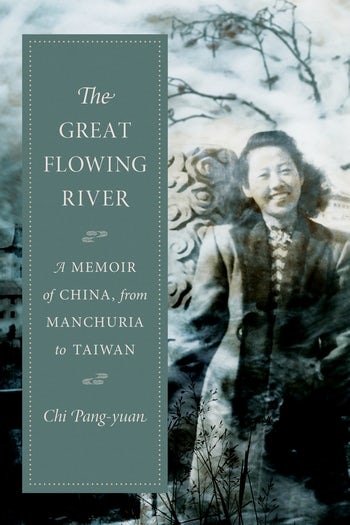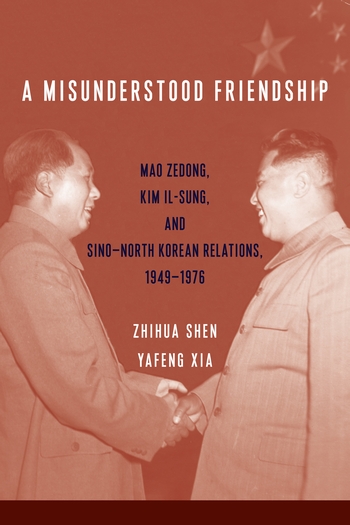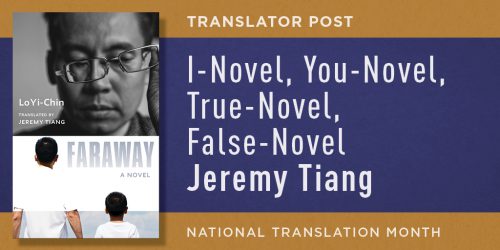Book Excerpt! Chi Pang-yuan’s The Great Flowing River

This week for National Translation Month we are focusing on Sinophone literature in English translation. For today’s post we are sharing an excerpt from The Great Flowing River by Chi Pang-yuan, translated by John Balcom, a powerful personal memoir set against the changes that shook twentieth-century China and Taiwan. Chi Pang-yuan, a professor emeritus of English and comparative literature at National Taiwan University, helped define Taiwanese literature. In this post, Chi recounts the founding of our own “Modern Chinese Literature from Taiwan” series.
• • • • • •
An Unexpected Pleasant Surprise:
Modern Chinese Literature from Taiwan in English Translation
In 1996, David Wang invited me to participate in the planning of the Modern Chinese Literature from Taiwan in English translation series for Columbia University Press. The editorial board was composed of David Wang, Göran Malmqvist, and myself, with funding provided by the Chiang Ching-kuo Foundation for Scholarly Exchange. This was the last unexpected and pleasant surprise in my life, and a great opportunity to fulfill a cherished desire. Beyond the cultural significance of this cooperation, there was also an element of destiny.
David Wang graduated from NTU’s Department of Foreign Languages and Literatures in 1976 and went to the United States, where he obtained a Ph.D. in comparative literature from the University of Wisconsin. In 1987 he was teaching at Harvard, and Nancy and I invited him to serve as an editorial consultant for the PEN quarterly. He frequently returned to Taiwan to see family and attend conferences, and his writing on Taiwan literature was as broad as it was deep and influential. In 1990 he went to teach at Columbia University and was taken on as an advisor for the Press, entrusted with carrying out the Chiang Ching-kuo Foundation plan for translating Taiwan literature into English. From the time our cooperation began until now, over thirty volumes have been published in the series.
“This was the last unexpected and pleasant surprise in my life.”
In 1989, David Wang returned to Taiwan for his father’s funeral. Shortly after the ceremony, Liang Surong, a family friend, asked me, “Do you know that he is Mr. Wang Jingren’s son?” Hearing this, I was dumbfounded and overcome with a mixture of feelings. My own father had just passed away two years earlier and the events of his life were still fresh in my memory. My father arrived in Taiwan with nothing, but he did have staunch friends who wanted to help keep Time and Tide going, for which I was grateful.
When the Japanese occupied the northeast, Wang Jingren served as the director of the Bureau of Education in Changling County, Jilin, and secretly took part in anti-Japanese underground work, assisting in the revolutionary activities of which my father was in charge. He was a patriot filled with a sense of justice. Who could have foreseen that after victory in the war against Japan, international and national policy mistakes would allow the northeast to fall into the hands of the Communists? Making the arduous journey, he arrived alone in Taiwan, his home and country lost. Early on, he was recommended by Shi Jian, a revolutionary comrade, and joined Time and Tide as an editor when it resumed publication in Taiwan. Later he was in charge of the business office. From the end of the 1950s to the 1970s, he helped my father keep the weekly magazine going, sometimes without pay and even risking being jailed wrongly by the political powers. Time and Tide had the most weight of any publication with international political commentary in Chongqing during the eight years of the war. On the verge of bankruptcy, it shut down several times, but always resumed. In the last run, 153 issues were published, and they received 152 warnings from the authorities before they finally stopped publication. In those ten years in Taipei, they moved from Xuchang Street to Jinxi Street, where they rented a small room and, ignoring the precarious situation outside, shared in the difficult-to-realize ideals and aspirations of men of letters, which took a great deal of courage. I admired Uncle Jingren’s sense of morality and justice and his strength of character. If the two old brothers get together again in heaven, it will be comforting to them to see that destiny brought David Wang and me together to continue their life and work in letters.
“Destiny brought David Wang and me together to continue their life and work in letters.”
For a decade David and I communicated by letter, and when faxes came along, the first letter I sent to him by fax was on New Year’s Eve 1998: “The cold comes in wave after wave, and there are far fewer firecrackers outside than last year. It’s said there’s a recession and everything is depressed. . . .” Actually, I wrote that letter about the English translation of Li Qiao’s Wintry Night. One of Columbia’s outside readers for the manuscript felt that Wintry Night had value in terms of the study of world literature, but that most English readers would not be interested in it. I said, “If the book has value, then it should be published in the series. Naturally, from the perspective of Rose, Rose, I Love You or The Butcher’s Wife, books like Wintry Night or Orphan of Asia would be of little interest. But Arundhati Roy’s The God of Small Things and Charles Frazier’s Cold Mountain, two award-winning books in America and England, would be much the same type. Taiwan books such as Wintry Night, The Three-Legged Horse, and A Thousand Moons on a Thousand Rivers are dear to us, but the world contains many different us’s.”
Rereading this letter ten years later, I think of how David Wang and I struggled in various ways while selecting books to be translated, having them translated, and getting them published. I can say that it was a revolutionary feeling. Yunzhong Chongzhong, David Wang’s mother, joined the Ethical Society in Shenyang and spent her life dedicated to female literacy classes, craft classes, kindergartens, and other social services. The Ethical Society in those days had a heart of religion but without the trappings of a religion, nor was it involved in any political activities; instead, it used the simplest methods to get close to the people. In the homeland to the north, which had been closed off, they helped countless women escape the sad fate of ignorance. It was the same when they came to Taiwan. David Wang was born in Taipei in 1954, and from a boy who liked to find a quiet corner in which to read he grew into a true scholar, one who enjoys helping others, regardless of whether they are family or not. We share a common attitude toward Taiwan literature: we wanted to contribute something out of our feelings for the place, even before “Do you love Taiwan or not?” became a political slogan. Fortunately, as long as Columbia University exists, the press will continue to operate and our series of books will continue to exist. When our descendants abroad read these books, they will have a truer understanding of the place of their origins. So, our efforts, David’s and mine, ought to have some everlasting value.
“Taiwan books . . . are dear to us, but the world contains many different us’s.”
• • • • • •
Find out more about Chi Pang-yuan and her life in David Der-wei Wang’s introduction to The Great Flowing River.








